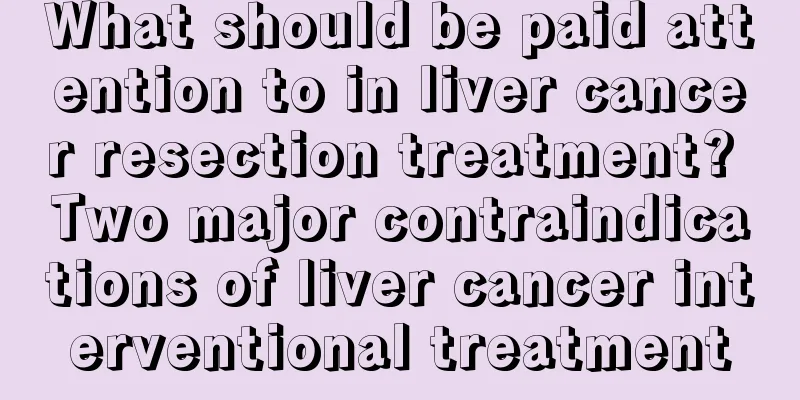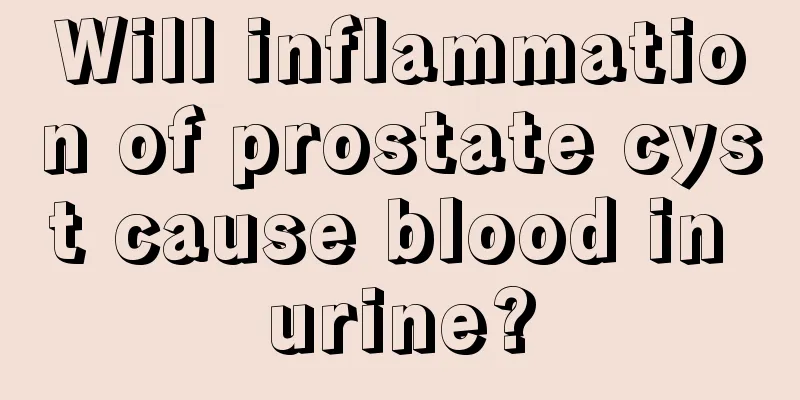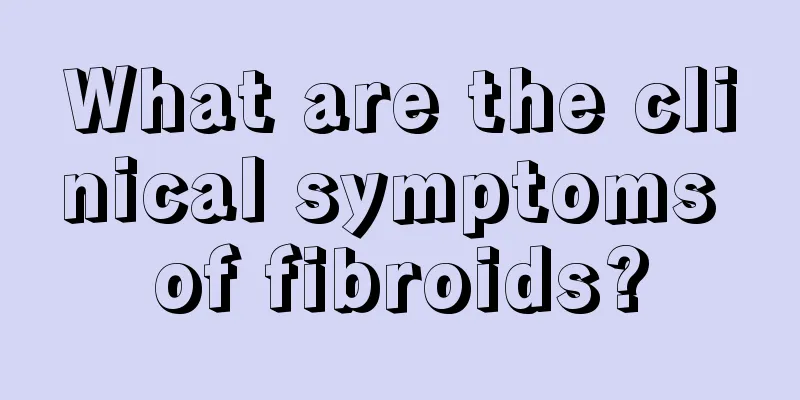What should be paid attention to in liver cancer resection treatment? Two major contraindications of liver cancer interventional treatment

|
Hepatocellular carcinoma resection is not suitable for all liver cancers As we all know, most liver cancer patients in my country have a background of post-hepatitis cirrhosis and portal hypertension. Under such a background, performing a "major operation" such as liver cancer resection is undoubtedly adding insult to injury. If the remaining liver tissue is severely damaged and poorly compensated after the operation, serious complications such as liver dysfunction or even failure are likely to occur. Even for patients who can recover, it is an indisputable fact that their quality of life will be reduced after their livers have been "tortured". In short, liver cancer resection requires not only a good liver function background, but also rational treatment decisions, especially in my country. In order to specifically illustrate the limitations of liver cancer resection, the following two cases are compared and explained: Although liver cancer resection is the mainstream treatment for liver cancer in my country, it has inherent limitations. When performing liver cancer resection, a certain amount of normal liver tissue will always be lost, which will have a significant impact on liver function; anesthesia, bleeding, portal blockage, etc. will also have a considerable impact on the remaining liver tissue; liver lobectomy/segment resection will inevitably reduce the intrahepatic portal vein channel, and the portal vein pressure will increase accordingly. It can be seen that liver lobectomy/segment resection is a highly invasive and destructive treatment method. "Subjugating the enemy without fighting" is the trend Since there are many limitations of liver lobectomy/segment resection for liver cancer, people have tried to treat liver cancer with relatively "gentle" methods since the 1980s, such as interventional embolization, local treatment (including percutaneous puncture anhydrous alcohol injection, radiofrequency ablation, cryoablation, etc.), focused ultrasound therapy, or liver transplantation, a more thorough way to treat liver cancer. Today, the treatment of liver cancer has formed a benign development situation in which surgical treatment (including liver lobectomy/segment resection and liver transplantation), traditional Chinese medicine treatment, interventional embolization, local treatment (represented by radiofrequency) and chemotherapy complement each other. The trauma of each treatment method for liver cancer is different. Generally speaking, liver transplantation> liver resection> interventional embolization> radiofrequency ablation> traditional Chinese medicine treatment. For smaller liver cancers, minimally invasive treatment methods such as radiofrequency ablation, interventional embolization, focused ultrasound, etc., alone or in combination with traditional Chinese medicine treatment, should be the preferred treatment method. Contraindications of interventional treatment for liver cancer: Be careful to check and avoid risks Interventional treatment for liver cancer has attracted the attention of many patients because of its good effects and few side effects. However, its contraindications are a concern for liver cancer patients and their families. Interventional treatment for liver cancer is not suitable for any type of liver cancer patient. To help liver cancer patients understand whether they can undergo this treatment, we briefly introduce the contraindications of interventional treatment for liver cancer. 1. Absolute contraindications This must be absolutely prohibited, otherwise there will be major risks once interventional treatment is carried out, and in severe cases, life-threatening. 1. Severe jaundice. 2. There is a large amount of ascites. 3. Portal hypertension with retrograde blood flow and complete obstruction of the portal vein without the formation of collateral circulation. 4. Severe liver and kidney dysfunction or severe liver cirrhosis. 5. HCC occupies 70% or more of the liver. HCC, Hepatocellular Carcinoma, refers to hepatocellular carcinoma. 6. There are serious infections. 7. Large-scale cancer cell metastasis occurred. 2. Relative contraindications Such contraindications can be taken or partially taken under the guidance of a doctor according to the specific situation. However, the doctor must strictly control the treatment during the treatment. 1. Incomplete occlusion of the main vein, or complete occlusion of one of the left or right main branches of the portal vein, can be comprehensively analyzed based on liver function and systemic physical indicators. 2. Severe arteriovenous fistula or arterioportal fistula can be determined based on whether the fistula can be occluded. If an unoccluded fistula is embolized, the embolic agent will enter the systemic circulation and cause accidental embolization. 3. For some localized lesions where accidental embolization is unavoidable, forced embolization should not be performed, otherwise it will cause great risks. Therefore, we must strictly exclude such contraindications before we proceed with interventional treatment of liver cancer. |
Recommend
Introduction to the early symptoms of endometrial cancer
When talking about gynecological tumors, most wom...
How long can one live with advanced laryngeal cancer?
Laryngeal cancer is divided into primary and seco...
Is it because of dampness that I feel more sleepy the more I sleep?
Chinese people have more trust in traditional Chi...
What are the differences between the symptoms of wind-heat cold and wind-cold cold?
There are several types of colds. The more common...
Acupuncture points on the palm
Although we are not Chinese medicine doctors, we ...
Which is the best hospital for treating kidney cancer
Where is the best place to get treatment for kidn...
What causes urethritis?
The urethra is the sewer in the human body, and u...
Diet after ovarian teratoma surgery
Ovarian teratoma, also known as ovarian dermoid c...
What is desensitization treatment for allergic rhinitis
Allergic rhinitis is a common type of rhinitis. A...
Why does my stomach hurt when I go to the toilet to defecate?
Everyone has to go to the toilet every day to exc...
What to do if you have anal itching
When it comes to anal itching, it has to be said ...
Will eating eight-treasure porridge at night make you fat
A problem that many friends are worried about is ...
How to remove scale from an electric kettle
Every family has an electric kettle, but the long...
Can nasal endoscopy detect nasopharyngeal cancer?
With the continuous development of science and te...
On which day will I have milk after a caesarean section?
After giving birth, an important task for postpar...









